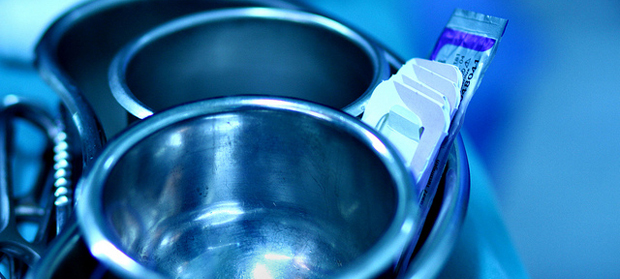A number of doctors and a head nurse at a hospital in Nis, Serbia’s third largest city, were arrested last month for allegedly accepting bribes of up to €13,000 and using their networks to secure healthcare jobs for relatives.
Such news echoes results from Transparency International’s 2013 Global Corruption Barometer, which revealed that 81 per cent of Serbians feel that healthcare services in that country are corrupt.
The President of the European Healthcare Fraud and Corruption Network had described the corruption in the Serbian healthcare system as “institutionalised”, emphasising how additional forms of payment for supposedly free healthcare services harm the system.
When is a gift a bribe?
Many doctors in Serbia are accustomed to receiving small gifts of gratitude from patients. But it has come to a point where about 40 per cent of doctors ask for gifts, with a number of them also charging patients additional “tariffs” in exchange for better treatment. Starting from €300 euro in some institutions, these tariffs are locally defined as “minor corruption”, even though they amount to over 70 per cent of an average person’s monthly net income in Serbia, which is less than €400.
Healthcare corruption cases have been mounting over the years. In April 2014, all the gynaecologists who worked at a community healthcare centre in the south-eastern town of Pirot were arrested on allegations of accepting bribes over a two-year period, a case that has also been addressed by our national chapter, Transparency Serbia.
And this May, a dentist and his assistant working at the Nis prison were arrested and suspended for accepting bribes from a convict needing treatment. These arrests follow more notorious cases involving the pharmaceutical industry, such as the government’s Operation Crab, which uncovered that Serbian pharmaceutical companies were bribing doctors to prescribe their cancer treatment drugs over those of competitors, even when they were not needed for a patient’s treatment.
Corruption costs lives
Healthcare corruption should be made a top government priority, as it exploits the most vulnerable – the ill – and can lead to loss of lives.
In Serbia’s case, many healthcare workers see bribery as a means to survive due to low salaries resulting from the government’s budget deficit. Salaries are also driven down by the country’s overall unemployment rate of over 20 per cent, including over 2,700 unemployed doctors and 13,000 unemployed nurses.
But there are healthcare workers who are taking a stand: in 2010 professionals from the public and private healthcare sector came together to form a non-profit organisation called Doctors Against Corruption, which raises awareness of the problem and helps implement anti-corruption strategies.
An effective way of fighting healthcare corruption is to involve civil society, where citizens can call for action. This year an NGO called Serbia on the Move set up a hotline through which people can report healthcare corruption via text messaging. By July, around 1,000 complaints had been received and 15 criminal charges filed. Serbia’s Anti-Corruption Authority has also supported projects and released papers on civil society’s perception of corruption in the sector.
But Serbia is not the only country in the region affected – corruption in healthcare plagues a number of Balkan countries. Most people are desperate to resolve it, but they also fear the backlash if their lives are put into the hands of those who thrive in this system.
Carousel image: Copyright, Flickr / Phalinn Ooi
















 Connect with us on Facebook
Connect with us on Facebook Follow us on Twitter
Follow us on Twitter